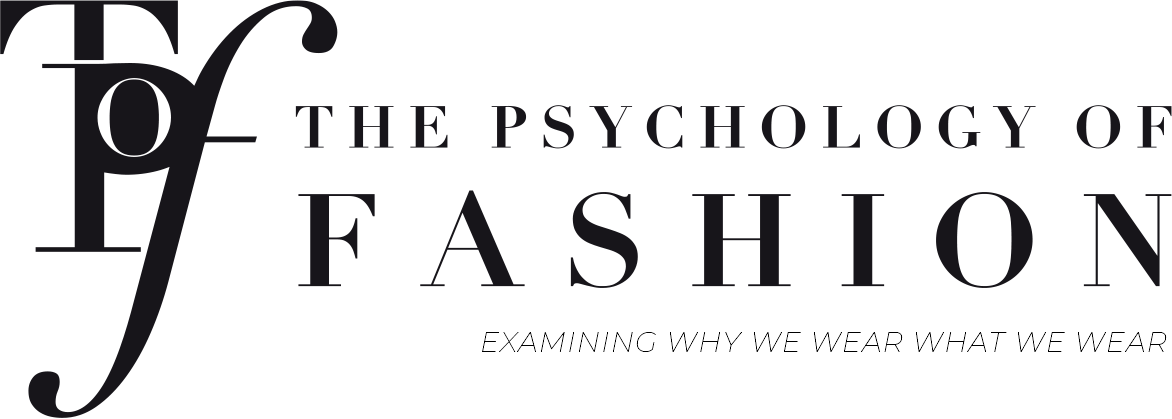I am a psychologist who also works in the area of fashion and image. When I began to immerse myself in this world, I often wondered how I would combine both things and translate them into one. I wanted my image to speak for itself, to feel identified with a garment that had enough strength to reflect my personality. I sought to to see myself as a professional and see my creative world and passion for fashion reflected simultaneously.
By trial and error, and getting dressing every morning, I found that the blazer would become my best ally. Every time I wore it I felt in my own skin, and so I asked myself: what was it that generated this, what did it mean to me, and how did it make me feel every time I used it?
I found that it made me feel comfortable, elegant and confident without causing me to lose my authenticity. Also, that the connections of my brain associated that this mixture of sensations and feelings that came from the blazer sent me back to my grandmother, who was always elegant and was always wearing a blazer. As a child, I admired her way of dressing and the energy she transmitted, and it was because of her that I became interested in the world of fashion. I remember that in the middle of the night she was preparing herself to go to the theatre to listen to classical music and her final touches were always her Chanel perfume Nº5 perfume and a well-tailored jacket. She had the whole family staring with mouths agape: you could not fit more elegance into that woman.
You may wonder what this personal story has to do with the world of the psyche and the image, and why I chose to share this. In psychology, we learn that fashion and clothing are a form of communication, a way of saying something without the need to verbalize it, and that fashion implies a symbol. This is precisely what differentiates us from other species - our ability to symbolize. Thanks to this ability, we can augment reality and we do it continuously, with clothes. The act of having a garment with a certain significance occurs because of our cognitive capacity to symbolize. Our brain is able to associate moments lived in and around certain garments, and each will have a different value for those who use it depending on the context.
But the process doesn’t end here. Although we ascribe personal and sentimental value to the garments, which is totally subjective, we also have the power to communicate certain universal values which are understandable to all. The blazer in which I felt so good not only made me remember my grandmother and brought me great memories, but I realized that there was something else about it.
So I did some research on its objective symbolism. Inquiring into its history, I learned that the great Coco Chanel was the one who imposed the blazer on women after the war when only men were allowed to wear it, as it was seen as a masculine work garment which did not inspire femininity in women.
According to the science, the blazer makes you feel strong, and, materially well-off. The University of California investigated the cognitive consequences of formal dress, and items such as a blazer, and concluded that its use helps to better communicate our objectives. According to Vanessa Friedman, fashion critic of the New York Times, the use of formal garments affects our behavior and makes us feel more powerful.
No matter how you style it, the blazer is a power piece. (Photo: pinterest.com)
With this I realized that our symbolic take on clothing is influenced by two very powerful forces. On the one hand, there is a subjective value given to a garment, which is completely personal and assigned according to experiences and emotions lived, and on the other hand, there is the symbolic value that is more universal character, which helps society share a common communicational code.
Our way of dressing can provide a lot of information about oneself. I think the important thing is to be able to find that garment that we know how to wear to perfection, the one in which we feel in our own skin every time we wear it, a piece that can communicate who we are, and that symbolically also possesses strength. All human beings are involved in these processes, even those who claim to not be interested in fashion or clothing, or who believe that clothes are purely functional and do not mean much more than that. The reality is that each and every one of us gets dressed every morning, and in doing so, there are decisions to be made, either for what we decide to conserve or discard, and in those choices, there is a whole universe which must be deciphered.
Sofia Pettenazza is a writer, image consultant, and psychologist based in Buenos Aires, Argentina.












In the world of post-pandemic dressing, one word has taken social media by storm: cheugy (pronounced: chew-gee). In the worlds of fashion and lifestyle, cheugy describes a look, a thing or a person that’s considered out of date.